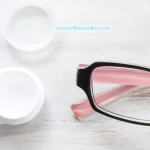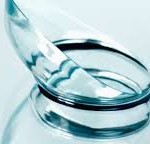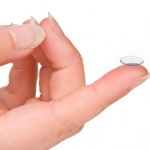Contact Lenses vs Glasses: Which One Is Safer During the Coronavirus Pandemic?

Our faces are on constant risk nowadays because of the COVID-19 pandemic, and our eyes are definitely not an exception to the dangers of the virus. This information is even more disturbing for people who have vision problems. So, which one is more suitable during this global crisis: contact lenses or eyeglasses?
What can I do to prevent the spread of COVID-19?
For starters, the most effective way to stop spreading the virus is to avoid contracting it. You have to stay at home at all times to avoid it. But, when the need to go out of your home arises, social distancing is a must and you have to guard your mouth, nose, hands, and–of course–your eyes.
Never rub your eyes, especially in public.
According to a published paper by the Journal of Occupational and Environmental Hygiene, an average person touches his face for approximately 15 to 23 times per hour and half of that is on his nose, mouth, and eyes. A single contact of your unclean hands with your eyes, mouth, and nose can change the whole dynamic of your health.
Remember that viruses aren’t only transmitted through the air; they can also be transmitted through touching. A virus can live for at least nine hours, sometimes days on hard surfaces. So, as much as possible, avoid touching your face.
Touching your face is a natural habit, though. Some people may call it a reflex, and this can be too hard to break. Since having an itchy face is inevitable, use a clean tissue instead.
If you’re a glasses or contact lens wearer, it’s better to moisturize your eyes regularly with eye drops to avoid dryness which can trigger an itch. However, if direct contact is really needed for your eyes, you must clean your hands thoroughly with soap and water for at least 20 seconds before and after touching your eyes.
Also, observe proper removal, cleaning, and storage of your contact lenses. Using the right storage case and contact solution can go a long way for your health and safety.
Wear eyeglasses instead of contact lenses.
There’s a simple reason why you should switch to spectacles: using contact lenses can easily trigger direct contact with your eyes, unlike when you’re wearing eyeglasses. According to the American Academy of Opthalmology, “Substituting glasses for lenses can decrease irritation and force you to pause before touching your eye.”
Eyeglasses can also add a protective layer to your eyes, but don’t expect full protection from the virus. The fact remains that you should never forget to clean your hands and use a tissue when handling or adjusting your glasses.
Additionally, it’s important to note that proper care and disinfection of contact lenses and eyeglasses are equally important as taking care of your eyes. Clean your hands thoroughly before and after disinfecting your glasses or contacts.
How are the eyes vulnerable to coronavirus?
Again, coronavirus isn’t only contracted through your nose or mouth; it may also be contracted through your eyes.
It should be noted that there are actually crucial findings from a joint study of experts focusing on the presence of ACE2 or the receptor of SARS-CoV-2 or COVID-19 in the tears of people who died from coronavirus. They specifically found out that all tested variables have traces of the virus on the ocular surface which includes the cornea, limbus, and conjunctiva, indicating the possibility of the eyes being an entry point and reservoir of coronavirus. This also indicates that the eyes are susceptible to infection.
Now, to give you a clearer view of the transmission through the eyes, you should know that the particles from the mouth and nose of a person with coronavirus can be directly sprayed to exposed eyes when he coughs, sneezes or talks. The said particles can stay on those eyes for a really long time, which leads to the spread of the virus all over the face if the person keeps on touching his eyes.
On some rare occasions, coronavirus can be a possible cause of pink eye or conjunctivitis. However, if you suddenly have conjunctivitis, don’t panic just yet. Consult a specialist to know for sure whether the cause is viral or not. Bacteria can also be a cause of pink eye.
If COVID-19 is ultimately the cause of a certain conjunctivitis case, that’s going to be highly contagious because of the discharge. Residues can stay on different surfaces if the person touches his eyes without washing his hands afterwards.
Learn more about conjunctivitis and how to deal with it if you’re a contact lens user here.
See available contact lenses:
Contact lenses without prescription
Conclusion
Wearing eyeglasses is much safer than contact lenses when it comes to the dangers of this pandemic. Glasses can serve as shields for your eyes, preventing direct contact. With contacts, the virus can stay on the surface. Just imagine that there’s only a thin layer separating your eyes from the virus.
However, you should still observe a more thorough cleaning of your spectacles and frequent handwashing. As for the basics, try your best to not touch your eyes whether you’re out in public or staying at home. It may sound cliche, but prevention is always better than cure.
Lastly, your eyes need extra protection and precautions since the virus can stay on the moist surface of your cornea. It can even cause pink eye, increasing the chances of viral transmission through the sticky discharge of the infection.
Where to Buy Contact Lenses for Home Use
If you’re only going to stay at home most of the time, feel free to wear your contacts all day every day. If you need a new pair or set of contacts without going out, Contact Lenses 4 Us is here for your convenience. With us, you’ll have the freedom to order without a prescription no matter where you are in the world. We have a wide range of products for different needs like the Dailies Aqua Comfort Plus for convenient daily disposal, the Acuvue Oasys for day and night use, and the Air Optix Aqua Multifocal for people with presbyopia.
See also:
Contact Lens Myths During the Coronavirus Pandemic
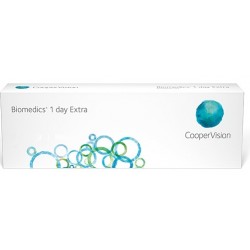
Biomedics-1-Day-Extra Contact Lenses (30)
At Contact Lenses 4 US, we are proud to have the widest range of disposable contact lenses. If you are looking to grab Biomed...
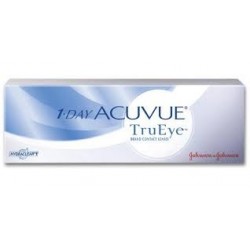
1-DAY ACUVUE TRUEYE (30)
The 1-day Acuvue TruEye (30) lens made by Johnson and Johnson, offers the highest UVA and UVB blocking among disposable conta...


